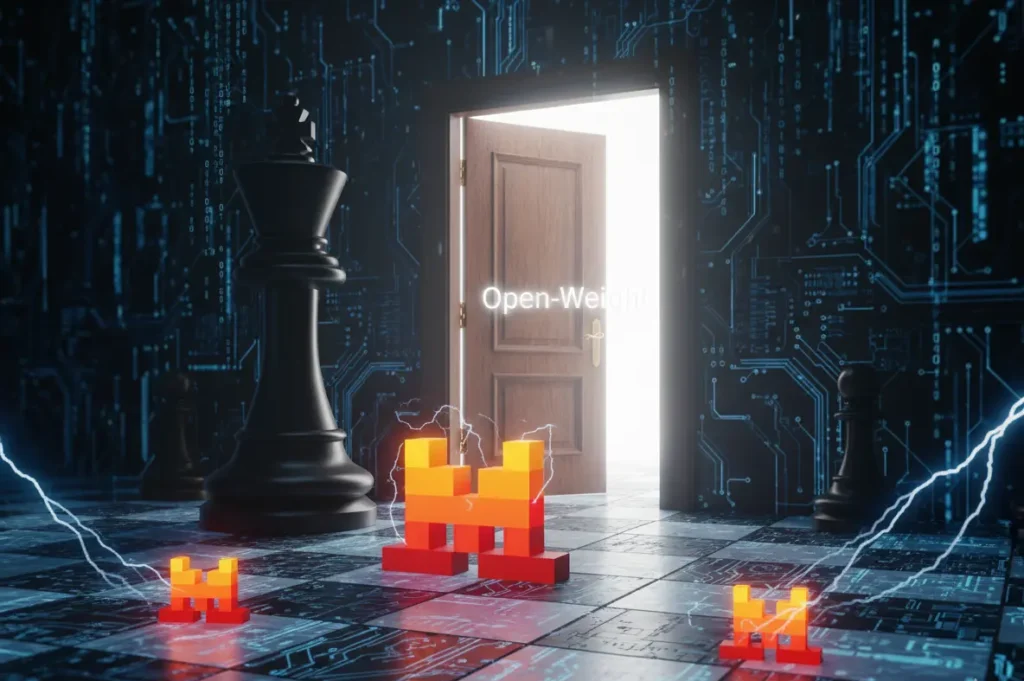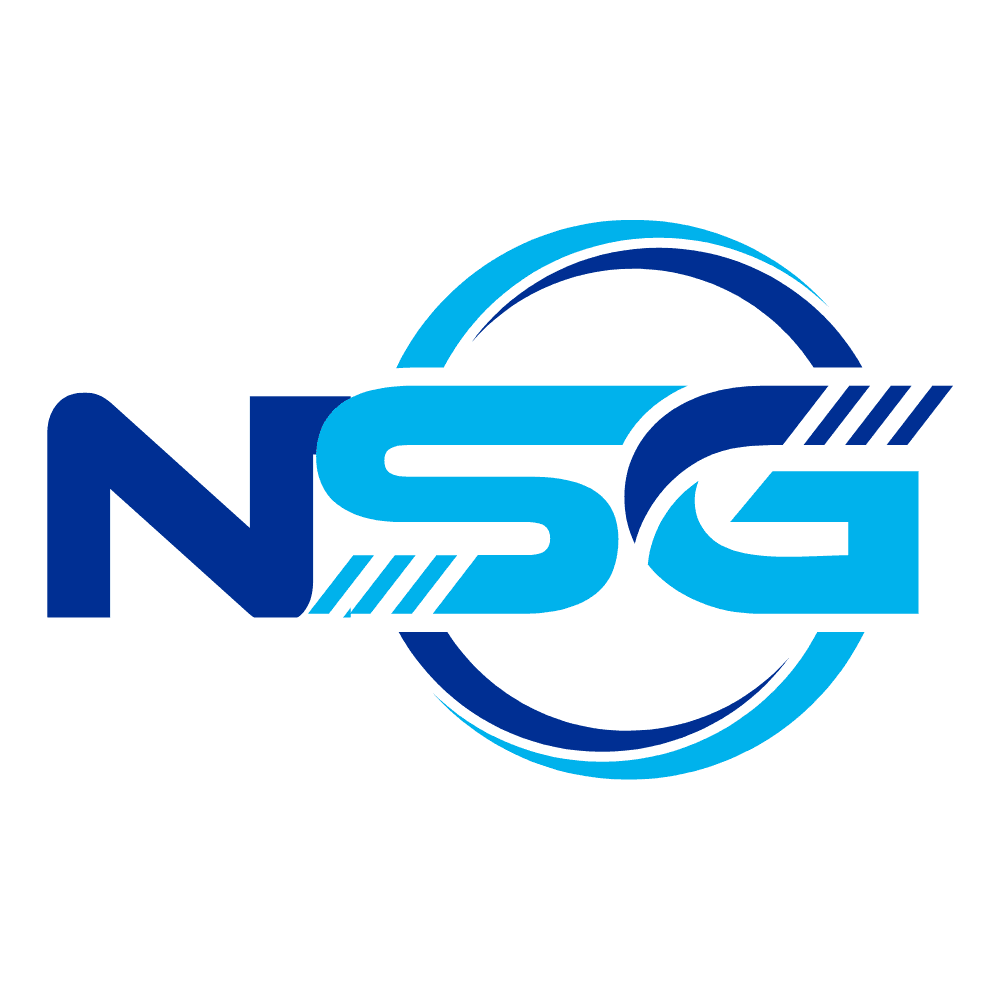In a digital landscape dominated by Silicon Valley’s AI giants, a small French startup has managed to do something truly remarkable: command a $14 billion valuation and get the world’s largest companies to take notice. Mistral AI isn’t just a European alternative; it’s a philosophical and technical challenge to the very foundation of “closed” AI.
This is not a generic overview. This is an analysis of why Mistral AI is the most important story in AI today, how it’s positioned to outperform competitors, and what it means for the future of innovation.
The Open-Weight Thesis: A Bold Bet Against the Black Box

The core of Mistral AI’s strategy is its commitment to “open-weight” models. While rivals like OpenAI keep their most powerful models and their underlying data a closely guarded secret, Mistral releases its model weights to the public.
Why is this so valuable?
- Control and Customization: For developers and businesses, this is a game-changer. It means you can take a powerful model and run it on your own servers, with your own data, maintaining full control and privacy. It’s the difference between renting a tool and owning the factory.
- Security and Auditability: In regulated industries like finance, healthcare, and government, a black-box model is a compliance nightmare. With an open-weight model, you can audit every step of the reasoning process, ensuring transparency and security. As CEO Arthur Mensch put it, the company’s mission is to “enable anyone to build a powerful AI solution that is tailored to their needs and stays under their control.”
Why The Money Is Pouring In
Recent funding news proves this isn’t just an idealistic vision; it’s a winning business strategy. According to Reuters, ASML—the Dutch giant that is a crucial supplier to the world’s chipmakers—has become a top shareholder in Mistral. This isn’t just a financial investment; it’s a vote of confidence in Mistral’s long-term play for “digital sovereignty.”
“We may have lost some battles in the digital war, but we haven’t lost this one,” said French Digital Minister Jean-Noël Barrot, signaling strong government support for homegrown AI champions.
This strategic alignment with powerful European interests, as reported by FinTech Weekly, gives Mistral a massive advantage in a region increasingly concerned with data autonomy and regulation. It’s an opportunity that OpenAI and other U.S. giants cannot easily replicate.
Mistral AI vs. OpenAI: A Quick Showdown
This mobile-optimized table breaks down the core differences between the two AI powerhouses.
| Feature | Mistral AI | OpenAI |
| Model Philosophy | Open-Weight & Open-Source | Primarily Proprietary & Closed |
| Cost | More Cost-Effective, Especially for Large-Scale Use | Higher Cost, Especially for High-Volume API Use |
| Control | On-Premise & Self-Hosting Options | Primarily Cloud-Based & API-Driven |
| Speed | Highly Optimized Models (e.g., MoE architecture) for Faster Latency | Fast, but Can Be Slower Due to Complexity & API Traffic |
| Audience | Developers, Researchers, Enterprise Teams | Broad Enterprise & Consumer Market |
How This All Plays Out for You
Mistral AI’s rise is creating a new ecosystem for innovation. It’s not just about building better chatbots; it’s about empowering a new generation of developers and businesses.
Think about it:
- For Developers: You now have access to a top-tier model that you can tinker with, fine-tune, and run on your own hardware without prohibitive costs.
- For Businesses: You can deploy powerful AI solutions that align with your data security policies and regulatory requirements.
The company is moving at breakneck speed, recently launching new products like the enterprise-focused Magistral for transparent reasoning and Codestral for advanced code generation. These innovations are specifically designed to meet high-stakes business needs, directly challenging the likes of OpenAI and Google on their home turf.
Resources & Further Reading
To provide a comprehensive and authoritative overview, we’ve compiled a list of external resources and articles from trusted sources. These links will help you dive deeper into Mistral AI’s business strategy, technology, and market position.
- ASML becomes Mistral AI’s top shareholder after leading latest funding round
- Source: The Hindu (via Reuters)
- Link:
https://www.thehindu.com/sci-tech/technology/asml-becomes-mistral-ais-top-shareholder-after-leading-latest-funding-round-sources-say/article70024575.ece - Description: A detailed report on the landmark investment that made the Dutch semiconductor giant a top stakeholder in Mistral AI.
- Exclusive: Mistral plans to accelerate growth via M&A
- Source: Sifted
- Link:
https://sifted.eu/articles/exclusive-mistral-growth-acquisitions - Description: An exclusive report on Mistral AI’s strategic plans to acquire other startups to expand its capabilities and market share.
- Mistral AI in 2025: How a French Startup is Rewriting the Rules of Global AI
- Source: TECHi (via TechCrunch)
- Link:
https://www.techi.com/mistral-ai-french-open-source-leader/ - Description: A comprehensive overview of Mistral AI’s products, business model, and its position as a major competitor to OpenAI.
- Paris-Based Mistral AI Seeks $14B Valuation as Europe Charts Its Own A.I. Path
- Source: Observer
- Link:
https://observer.com/2025/09/mistral-europe-ai-powerhouse-14b-valuation/ - Description: This article explains Mistral AI’s role in Europe’s broader push for independent AI development, positioning it as a key player in the race for technological sovereignty.
FAQs about Mistral AI
How is Mistral AI different from OpenAI?
Mistral AI’s key difference is its open-weight philosophy, which allows developers and businesses to freely download and run its models on their own infrastructure. This contrasts with OpenAI, whose most powerful models are closed-source and can only be accessed via their cloud API.
Is Mistral AI better than ChatGPT?
Neither is definitively better; it depends on your needs. Mistral AI is often considered better for developers and businesses that require customization, data privacy, and cost-efficiency. ChatGPT is typically better for general users due to its polished interface and wide adoption.
What are the main products offered by Mistral AI?
Mistral AI offers a range of models and services, including:
Le Chat: A conversational AI assistant similar to ChatGPT.
Mistral Large: A flagship proprietary model for complex reasoning tasks.
Codestral: An advanced code generation model.
Magistral: A service designed for enterprise use with an emphasis on transparency and auditing.
Can I use Mistral AI for free?
Yes, Mistral AI offers a free version of its conversational assistant, Le Chat, which includes some enterprise-grade features. Additionally, its open-weight models can be downloaded and used for free, though running them may require computational resources.
Who are the founders of Mistral AI?
Mistral AI was founded by three former researchers from Google DeepMind and Meta: Arthur Mensch, Guillaume Lample, and Timothée Lacroix.
The New Era of AI is Here
Mistral AI is not just a company; it’s a movement. Its success proves that open-source principles and efficiency can compete with the deep pockets and walled gardens of Big Tech. The most significant battles in AI will no longer be fought in the lab but in the open, and Mistral is leading the charge.
